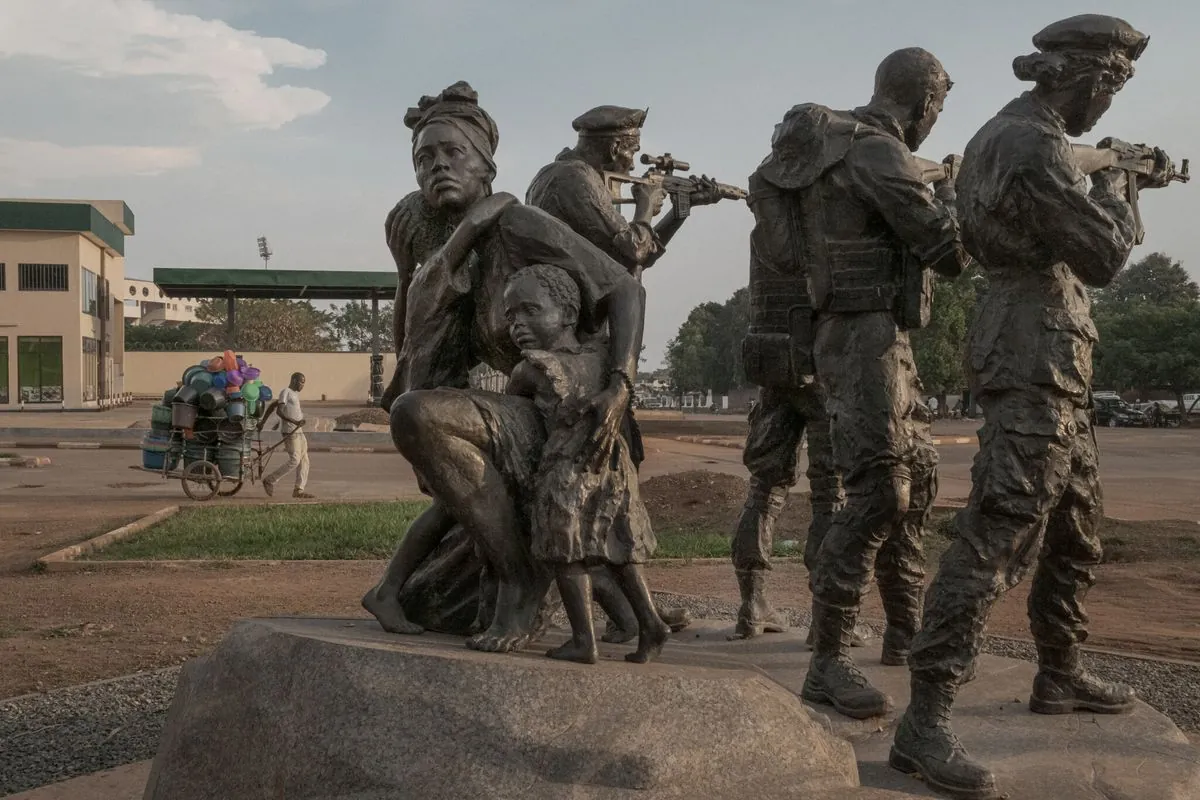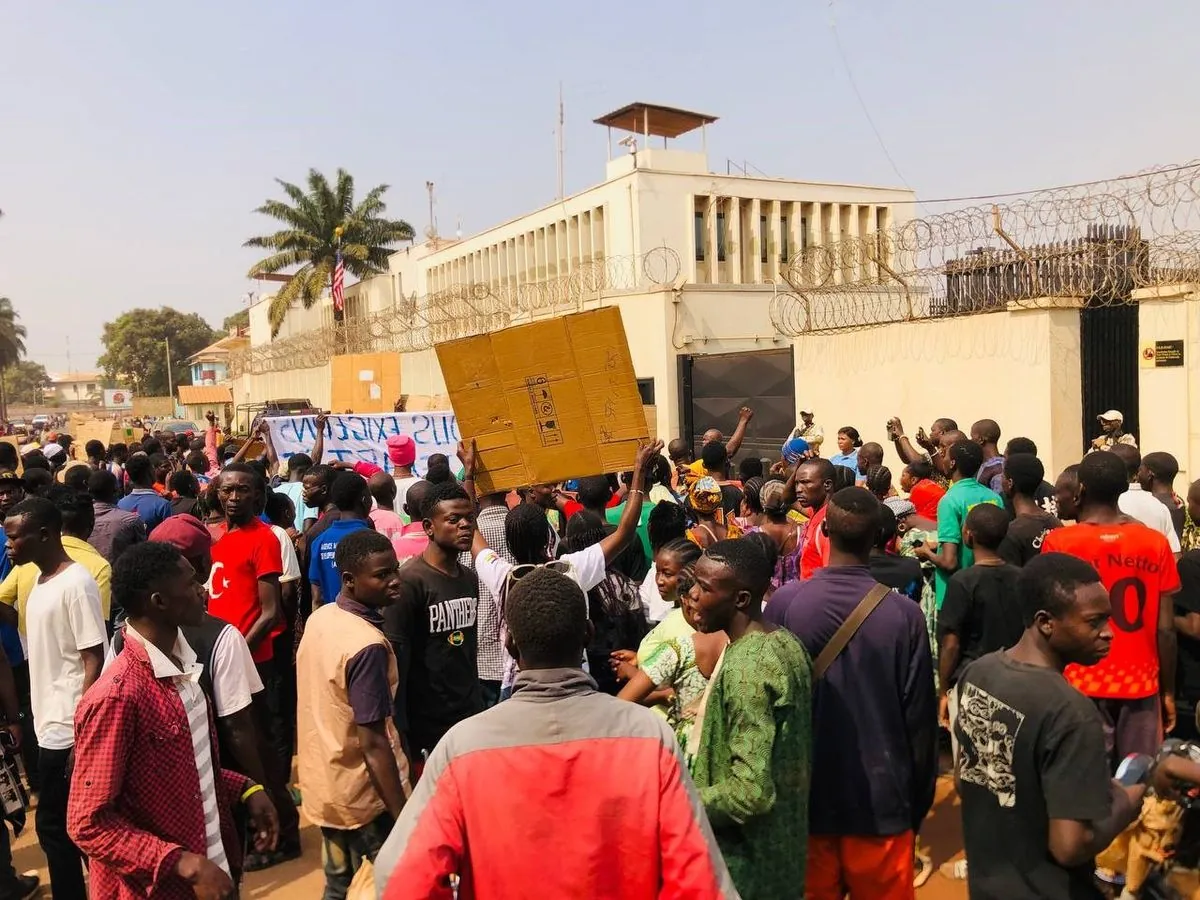CAR's Security Shift: From Russian Mercenaries to U.S. Contractors
Central African Republic seeks new security partners amid Russian mercenary turmoil. U.S. contractor Bancroft enters, sparking tensions with Wagner Group. Local population caught between foreign interests.

In the heart of Africa, the Central African Republic (CAR) finds itself at the center of a geopolitical tug-of-war between Russia and the United States. This nation of approximately 5 million people, rich in natural resources yet ranking among the world's poorest countries, has become a battleground for influence between these global powers.
The story begins on June 23, 2023, when Yevgeny Prigozhin, leader of the Russian mercenary group Wagner, launched an armed rebellion against Russia's military leadership. This event sent shockwaves through CAR, where about 1,500 Wagner mercenaries were stationed. In a surprising move, CAR officials reached out to a U.S. private security firm, seeking collaboration.
This outreach led to a deal with Bancroft Global Development, a Washington-based nonprofit. The agreement, signed in September 2023, marked a significant shift in CAR's security partnerships. Michael Stock, Bancroft's founder, stated that fewer than 30 personnel are now working in CAR, assisting with intelligence systems and law enforcement.

The presence of Bancroft has not been without controversy. Russian mercenaries, deeply embedded in CAR's security apparatus, have shown resistance to this new development. Local youths formed a committee to monitor Bancroft's activities, and rare anti-American protests occurred outside the U.S. embassy in Bangui, the capital city located on the Ubangi River.
Human rights concerns have long plagued Wagner's operations in Africa. Rights groups have accused the mercenaries of torture and civilian deaths. A soldier, speaking anonymously, confirmed witnessing torture tactics used by Wagner, including locking people in sweltering containers for weeks.
Russia's influence in Africa has grown significantly in recent years. Moscow has aggressively expanded its military cooperation, using mercenaries in at least six countries since 2017. In CAR, Wagner's presence dates back to 2018, and they were credited with repelling a rebel attack on Bangui in 2021.
The U.S., having been largely disengaged from the region, is now attempting to regain a foothold. However, its efforts face challenges, including the departure of U.S. troops from Chad and Niger. The State Department maintains that it wasn't involved in Bancroft's entry into CAR but acknowledges using private contractors to reduce American "boots on the ground" in Africa.
As tensions simmer, Russia is attempting to rebrand its mercenary operations in Africa. The creation of "Africa Corps" is seen as a potential successor to Wagner, as Moscow seeks to maintain its influence on the continent.
Amidst these power struggles, the local population of CAR remains caught in the middle. With one of the world's lowest life expectancies at around 53 years and a literacy rate of about 37%, many citizens are more concerned with daily survival than geopolitical maneuvering.
"There are problems between the Americans and Russians, but that doesn't matter to us. We are here working, trying our best to make a living. All we want is security."
As CAR navigates this complex web of foreign interests, the future remains uncertain. The country's rich natural resources, including diamonds, gold, and uranium, continue to attract international attention. However, for most Central Africans, the primary concern is not which foreign power holds sway, but whether their nation can finally achieve lasting peace and stability.


































